My daughter first latched within 15 or so minutes of birth and she latched great. My milk came in early and my daughter never lost more than 5% of her weight (despite my having an epidural which is often associated with a larger weight loss because of fluid retention; though perhaps how late I had it speaks to that, I don’t know). My supply was never a problem, she never had a tongue tie, a lip tie, or reflux, and she’s still going at 4 (again, on demand). Outside of a few bites, acrobatics, and bizarre accidents involving clamping and flailing a head back (I don’t even think there’s a word for it), it’s been one of the easiest things in parenting for me.
I understand how rare that is, and I realize how much people can hate hearing that. So hate me for a moment if you want, then please come back.
What I didn’t share above, but is critical, is that although I was willing and ready to fight through any obstacle because it meant that much to me, I wasn’t tested. My success, and easy success, has more to do with the environment around me. I credit my experience with a mix of determination, luck, support, and information. Before I go into the situational factors I don’t want to discount the role of determination of an individual mother. Moms, when they feel strongly about something and have the inner strength to fight can overcome a heck of a lot and we’d be wise to start remembering this, but it does not mean everyone can overcome everything and to assume determination alone can always win ignores the very, very real role that situational factors play in breastfeeding success.
So… What did I have that I can acknowledge not everyone does?
Well, it started years and years ago with my own mother who breastfed me, my brother, and my sister on demand until we each self-weaned around the age of 4 (she doesn’t remember who went a bit before or who a bit later, but we were all right around that age). Growing up seeing my siblings regularly breastfeeding was just a normal thing. I never once imagined I wouldn’t breastfeed my own kids and that I would stop at any arbitrary point. I also only saw friends and other family friends nurse (although most of them weaned their children much earlier). I babysat kids and used formula for them when parents were out (though I also reheated expressed breastmilk for some families), but I saw them all nursing their kids on a regular basis. It was normal. In fact, my sister-in-law was the first person I ever knew who exclusively formula-fed by choice from the start and by then my normalization of breastfeeding was well-established. Until then, I had seen nothing but breastfeeding being normalized and accepted by those around us.
Which is why we need to see more women breastfeeding at home, in public, in churches, in restaurants, wherever and we need to see them breastfeed babies, toddlers, preschoolers, or any kid who wants it who has a mom who’s happy to give it. We need it to just be something people see and experience so they know that they too can do it. In fact if there is ONE thing alone we need, this is it. We need more people like the Badass Breastfeeder to help us societally-normalize breastfeeding again.
When I was pregnant and took an amazing prenatal class with the woman who would be my doula, I learned for the first time about the breast crawl. I also learned how various birth interventions can negatively affect breastfeeding and how awareness of this and active work can minimize or completely eliminate these negative effects. This led to my ignoring all the advice on how to get a latch that wasn’t working in the hospital and just placing my baby on my chest and letting her do the work to latch—which she did with spectacular success. I was lucky too in how quickly she did it so I didn’t have to panic if I was the person who waited two hours for that event, but I also knew that that long wait was also normal so perhaps the panic wouldn’t have come.
Which is why we need real PRENATAL breastfeeding education. We need women to be fully aware of how the birthing process and breastfeeding are intertwined and how one can very readily influence the other. This is particularly important if the birth interventions were unplanned—having a successful breastfeeding relationship can help minimize any trauma that may occur.
The first five days weren’t so fun. My daughter nursed, yes, but screamed blue murder. My husband said it was just colic and it was normal. Having seen my mom’s experience (and other women in our neighbourhood), this seemed very far removed from “normal”. On Day 5 post-birth, one of my midwives came for a visit, took one look at my daughter’s butt (which had a bit of diaper rash, but nothing that bad at all) and declared something I was eating was bothering her. Based on the odds, she recommended starting with dairy then, if needed, gluten and soy. My husband maintained it was hogwash and it was just colic. My midwife explained that colic really “real” in the sense that it’s a medical term. It just is used to explain unexplained crying and often many of the causes are quite solvable, we just don’t look. Dairy did the trick (my daughter is full-on allergic, as we learned later) and life became wonderful. My midwives – who came for visits regularly in the first two weeks then I went to them for later appointments – checked latch and I assume would have checked for tongue and lip tie if here had been problems, though can’t be sure as we had no problems. I feel confident that I had the best type of support for identifying common problems that can lead to women giving up and feeling as though “breastfeeding isn’t working” by their support.
Which is why every woman who wants to breastfeed should have the appropriate care post-natally and for a period of at least a couple weeks up to as long as is needed. A good lactation consultant should be available to all mothers early and often to look out for common problems that can quickly become exacerbated or result in other problems. Tongue and lip ties need to be identified and treated (clipped or otherwise) to help the breastfeeding relationship. Reflux needs to be identified so parents understand what is happening, even if treatment is elusive. Food sensitivities need to be talked about so parents don’t erroneously believe their “milk is bad” and switch to formula. Mothers NEED good lactation support that is easily accessible AND affordable. Indeed, one of the greatest forms of support comes from other breastfeeding moms – they may be more valuable than anything else. This again brings us back to the normalization of breastfeeding and how essential that is to breastfeeding success.
My ability to be at home for an extended period with my daughter was critical. Even though I was a full-time student in a graduate program, my school has to offer what our government does: A full year’s maternity leave from my program. I wasn’t eligible for maternity leave pay from the government because, as a student, I hadn’t paid in for the eligibility period; however, I was on scholarship at the time and my scholarship provided four months pay at 100% for my leave. That’s more than most companies offer in the USA and this was just money from a scholarship fund! I realize how lucky I am to be in Canada, a country that actually values the parent-child relationship and enables families to have this time to bond and establish things like breastfeeding. (If you’re in the USA, I have a maternity leave letter you can sign and send to your Representative, just click here.)
Which is why every family deserves appropriate parental leave. Although ALL families deserve this, regardless of feeding method, breastfeeding families face unique challenges if they have to return to work too early. When mothers have to go back to work shortly after birth, she may be returning before breastfeeding is fully established, reducing the likelihood that she’ll be able to produce enough milk to successfully breastfeed; the use of bottles is more likely (even if for expressed milk) which can result in nipple confusion if done early on and baby may not successfully latch afterwards; mothers who cannot pump enough (even if they could breastfeed at the breast enough) may lose their entire breastfeeding relationship; and mothers who are returning to work may be stressed enough to not be able to handle the much-needed night feeds, meaning supply can wean (depending on pumping ability and amount), resulting in early cessation of the breastfeeding relationship.
At night – starting on day one – I would get into bed with my daughter. We had removed all big pillows and blankets, leaving a small decorative pillow no bigger than my head for me and me under a breathable sheet with my daughter on top. I was lucky she’s a June baby so making the bed extra safe was much easier. We also prefer very firm mattresses so we had no fear there, but we did lower our bed, however, as we seem to have an abnormally high bed. So each night we got in bed, she would nurse, I would rest, only getting up if she really was looking for us to be moving around. Soon she mastered the side latch without even needing my help meaning I sleep longer stretches without any interruption while she nursed away, helping my supply build then stay up. I joked, though was half-serious, that I had better sleep with my newborn than I had in the years preceding it. My husband was never exhausted for work, much to the chagrin of other fathers at his work with newborns too.
Which is why we need to educate women about SAFE bedsharing and the relationship between bedsharing and breastfeeding. Though bedsharing will still not be for every family (and that’s okay), when we demonize it or speak of making it illegal, we set up women to face far more hardships than they need to or want to. Bedsharing enables the breastfeeding relationship to thrive by allowing on-demand nursing all night which increases or maintains supply (depending on age of babe) while allowing mom to get longer stretches of sleep. Indeed, some parents realize something is wrong because bedsharing doesn’t improve crying and waking which tells them that they need to be looking into other reasons (which you can read about here). Bedsharing can be done dangerously, but we have no hope of avoiding that if we don’t educate families about how to do it safely if they want to.
Of course, I also had the greatest bit of support from my husband and family. My husband supported me 100% with everything. He never suggested supplementation, never suggested we mixed feed so we could go out at night (pumping did nothing for me – if I had judged my supply on pumping I’d have been panicked as hell – luckily I knew better), never did anything but support us totally and completely. He didn’t complain that he didn’t get to feed, instead taking over baby massage time as “his” thing. My mother was my champion and whenever my brother got a little squeamish at my breastfeeding my daughter around them, she’d chide him for it, reminding him he did the very same thing. Even my grandmothers – who I expected to show some resistance to the ease with which I popped out the boob no matter where we were because of how things were when they were parents – were totally supportive. One would just chuckle at how different it was now and the other talked about how the doctors told her that her milk wasn’t good and that formula was better followed by a discussion of how she’s pretty sure that was a load of crap, but she didn’t know that then. Within both sides of our family, everyone has just been dandy with not only the decision to breastfeed and be open about it, but that I’m still breastfeeding my now 4-year-old daughter.
Which is why we need to societally-normalize breastfeeding. Yes, I said that already, I know, but before it was for me only – now it’s for others. Until people see breastfeeding around them, bottles will continue to be the norm. Until kids shows feature breastfeeding instead of bottle feeding, how will our children realize that breastfeeding IS what babies are biologically designed to do. I have met kids who had no idea a mom could use her breasts to feed a baby and no matter what their parents did, they should know it’s possible. The more others are understanding and accepting of breastfeeding, the easier it becomes for all mothers.
***
Note that sometimes all of this will be there and nursing still won’t work out. That’s when a whole other type of support is needed, especially given the rise in PPD for women who wanted to breastfeed but couldn’t for any reason. Although I agree that no mother should feel “shame” for how she feeds her baby, I also acknowledge it’s unrealistic and ignorant to assume that mothers won’t feel bad or guilty when breastfeeding doesn’t work out. It’s not because they “should” but because that’s how us humans react when we hope to achieve something and it doesn’t work out, especially if we feel there’s more we could have done (whether it’s true or not, if we perceive it to be true, guilt will follow). It’s no one’s business to tell a mother how she should feel (positive or negative) but rather to listen and empathize with that particular mother’s situation.
Perhaps if we have these things in place, we might be able to see more mothers achieve their breastfeeding goals for them and their babies.

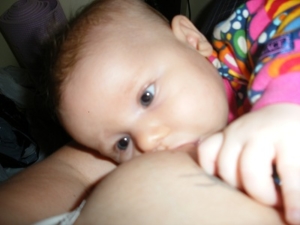
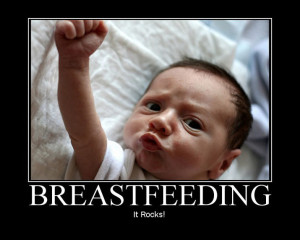

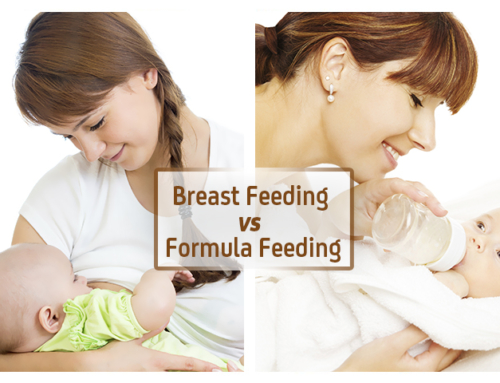

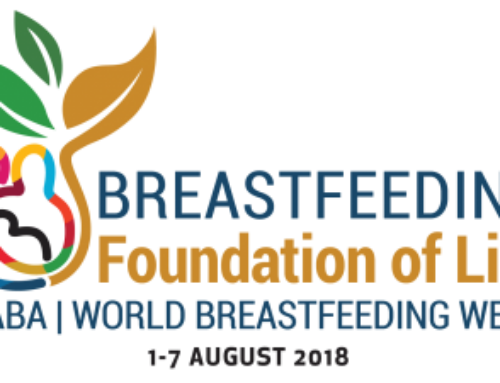
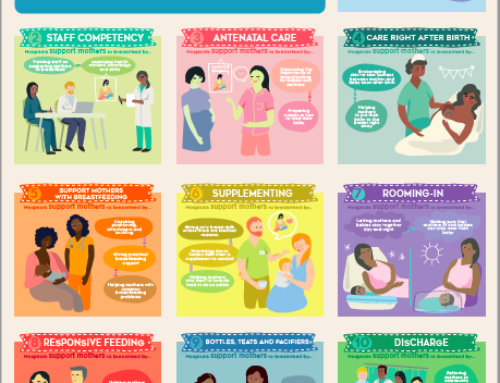
🙂
Just today a nursing mother (who was venting they were mammary glands and it was completely natural) used a false dichotomy of private or exhibitionist. And I thought again: it really is *that* abnormal in society when even nursing mothers suggest discretion and privacy or it’s “Hey, look at me!” :/.
Thanks for this. Didn’t really know anything about nursing when that nurse let me latch my boy. No support but two different lactation consults who just happened to be in the office when I showed up on two differerent occasions for under 5 minutes. And one awesome nurse post delivery who smiled and encouraged my feedings those first few hours. And we pulled it off. Three years this October. But that first nursing strike? If I hadn’t had an ounce pumped for standby, I’d probably have failed my own goals. I know how fortunate I was even with that little bit.
I can’t even imagine how hard it would have been hearing of the hurdles for others.
-e
[…] What Does It Take For Breastfeeding Success? | Evolutionary Parenting | Where History And Science Me…. […]
I have a healthy 14 month old who still nurses all the time but it was hell to get here. She was born naturally (two hr labor… And she’s my first!!) and latched on immediately. She nursed all the time but still lost almost a pound, however, gained it back by 2 weeks. Around 3 weeks we started having issues. First plug, then thrush, then several days of a very unhappy baby. Finally saw a LC, who became my angel! But found out baby had only gained 5 oz in 3 weeks. We tried a few things to get my supply back up but nothing was working. Finally supplemented with formula. She started gaining again but over the next few months her weight would be an issue. Nothing else seemed wrong. So she got formula and breast milk. I pumped 6 times a day to keep my supply up. Once she started solids her weight took off. My once 2nd percentile baby is now in the 40th. We discovered around 7 months that she had severe lip tie. No one noticed this or seemed to think it was an issue. We had it clipped and not long after she self weaned from her formula bottles. Nursing now is easy and how I always wanted it to be. It’s worth the effort it took in the beginning. I had a great LC but no support from family (excluding hubby- he’s great) and pediatricians who believed formula is best. The LC said that town (we’ve since moved) has one of the lowest breastfeeding rates in the country (US). It shouldn’t be that hard and I certainly shouldn’t feel guilty (less so now looking back) for using formula when we needed it. It seems tho that too many people think you can’t both breast feed and use formula. But I felt horrible even tho she needed the calories. It’s ridiculous! She’s happy and very healthy now but it was an exhausting several months for sure.
Sorry to write a novel… Just want people to know that even with struggling and formula long term breastfeeding is still possible!!
I’m so glad you were able to make it work! I admit I’m also very frustrated that people didn’t notice the lip tie 🙁 It’s so sad that something that is actually common enough is overlooked by so, so many, and yet can have a profound impact on breastfeeding.
But kudos to you for the hard work you did put in to make this work for you 🙂
My mum breastfeed, her mum breast feed her so when my daughter was born it hadn’t occurred to me that I couldn’t or wouldn’t be able to feed her.
I found my biggest issue was a fast flow and too much milk which resulted in a grumpy baby who just had to keep swallowing so she didn’t drown.
She did pack on the weight for the 1st 4 months but then it slowed as my supply stablest and I finally worked out that block feeding worked best for us in the early months.
Demand feeding, co sleeping (for the 1st 4 months and for naps still if I need one) feeding at night, skin on skin and not doubting my supply when bub had a growth spurt and feed more and not supplementing unnessasary are the reasons I think I’ve been successful.
I have 5 friends/family who had babies within 2 months of mine. None are still BFing but me.
Now I have a thriving 10 month old who is demand feed but I’m coming up to the 1 year mark and I’m already being asked when I’m weening her from family and friends.
I want to continue to BFing till atleast 2 but I doubt this will be supported outside my own family.
My GP was suprized I was still breast feeding as she has a mouthful of teeth (we are up to 9 now) really 1 tooth at 12 weeks is not that different to 8 of them now.
They learn no biting quickly!
I credit my BF success (8 months and counting!) with the fact that I am a midwife in the UK and see BF all the time. I also have learnt all the ‘theory’ behind it (i.e how to position baby, correct latch etc) which I think really helped. I had cracked nipples and the like when she was very wee – she has a loose lip tie, something we were never trained about! – but I never found it unbearable or even that painful. I truly believe education and normalisation are the key!
Hi!
I am not sure if you can read spanish but I thoought you would like to know about this:
http://www.abc.es/sociedad/20141124/abci-detenidos-pediatras-leche-artificual-201411241304.html?pos=Zona_A_Zona_apertura-a3__026
(In Spain:) 12 pediatritians arrested for reccomending formula in exchange for trips and bribes.
So, what does it take for breastfeeding success? Certainly not your doctor telling you formula is best.
It’s not just support it’s the right support. In the UK breastfeeding is best is pushed too hard by midwives but not enough by doctors. To qualify this my first child wasn’t being nurished we begged for help and was repeatedly told by various midwifes and HCAs that it was fine. Help was only forthcoming in the form of plug and socket attachment. Grab breast grab baby throw together walk away. On day 4 having given both a small formula top up and water my midwife actually shouted at me she didn’t need it. On day 5 midwife sent us to hospital where it transpired my daughter had lost 15.5% weight and had dangerously high sodium levels. Once under pediatric care it was polar opposite with formula pushed and I had to beg for a pump and to be allowed to use expressed milk. Once discharged with feeding still not established I had no choice but to bottle feed. I’ve heard similar stories too often.
This time around (bubs 13 days old) I thought I know what to look for I know to push for help etc. Again we had issues although nowhere as bad as last time and I’m asking for help. Advice received is them manipulating boob and baby to fit not spending time showing you how to do it yourself. I tell them repeatedly she’s not feeding properly and become absolutely sleep deprived trying to stick to their rigid cycle of half hour feed every three hours which culminated in one feed running into the other and never reaching half an hour. Why don’t they think every woman is different, every baby us different. I’m teaching myself to do this from Google. These so called lactation consultants and midwives etc over two children and two years have never told me that I won’t fully empty as I try to keep baby on waiting for her to ’empty’ my breast. They’ve never took the time to watch them feed and empty plain the different sucks for drawing down the milk, getting the fore milk or the hind milk. Not one has been able to have a conversation regarding supplements to help boost supply. Once I stopped listening to these so called experts and learning for myself my baby is finally feeding and gaining weight.
I loved this article, because my daughter and I had to really work at our breastfeeding relationship. Like you, I grew up with a mom that breastfed all four of us for a year+ and talked about how our bodies were designed to nurture our babies. I read Ina May’s book and took a breastfeeding class and was pretty confident that it couldn’t be that hard past the first few weeks.
My daughter had a severe posterior tongue tie, upper lip tie, dairy allergy, and torticollis. Really, it was quite awful for a while. We were lucky to have Aetna, because they cover 6 (!) free lactation consultant visits, and we found the best LC ever by accident. She gave us the name of a great pediatric dentist, and the dentist did laser surgery on my daughter when she was a week old. The pain improved almost immediately, but it took about 6 weeks for it to fully improve. My daughter hated nursing because her mouth hurt, and then developed a dairy intolerance. And then her neck hurt. There was a 6 week period where she would only nurse if I was walking, singing and bouncing her. It was insane.
Anyways, I don’t think I would have kept nursing, and I *really* wanted to, if I hadn’t had the full support of my husband, my mom, and my LC. It should be noted, though, that while they all told me that they were confident I could push through it, they also gave me permission to use formula. I had so much milk, though, and my daughter was thriving even though it was hard, so we kept nursing. And I knew it would get better. And it did! My daughter is five months old now, and nursing is a joy. She is chubby and affectionate and content at my breast, and we both love it. The struggle was awful at the time, but empowering now, because listing all the things that we had to get past is ridiculous. And we did it.